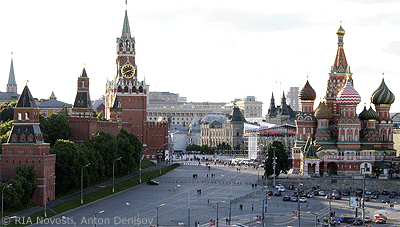RUSSIALINK: “Most Russians Say Soviet Union ‘Took Care of Ordinary People’ – Poll” – Moscow Times

(Moscow Times – themoscowtimes.com – June 24, 2019)
A majority of Russians believe that the Soviet system took care of the common man and woman, according to a recent poll by the independent Levada Center pollster.
Russia has seen an upward trend in positive opinions about the Soviet Union in recent years, with nostalgia toward it hitting a 14-year high in December. Public approval of Stalin’s role in the country’s history reached record levels this spring.
Fifty-nine percent of Russian respondents said “the state took care of ordinary people” when asked to name the defining characteristics of Soviet rule, according to Levada’s results published Monday.
The absence of ethnic conflicts (46 percent) as well as economic growth and lack of unemployment (43 percent) were the second and third-most common responses, Levada said. Constantly improving living conditions (39 percent) and advancements in science and culture (31 percent) placed fourth and fifth in Russians’ ranking of Soviet life.
All five of the responses suggesting an increasingly favorable view of Soviet rule saw a marked increase (by as much as 30 percentage points) from the last two times that Levada had asked the question in 2000 and 2008.
At the same time, fewer respondents identified Soviet life with longer lines in stores, international isolation and the persecution of dissidents than they did in past polls.
The “idealization” of the Soviet past does not imply that Russians would prefer to live in the Soviet Union, Levada sociologist Karina Pipiya said.
“All that the U.S.S.R. is now glorified for is largely a consequence of what Russians are unhappy with now: low income, inequality and corruption,” she wrote in an op-ed for the Vedomosti business daily.
Respondents were given 14 possible responses to rank as the defining traits of Soviet life, including poverty, the Communist Party’s guiding role and military spending.
Levada conducted the survey among 1,616 respondents in 50 Russian regions on May 24-29.
